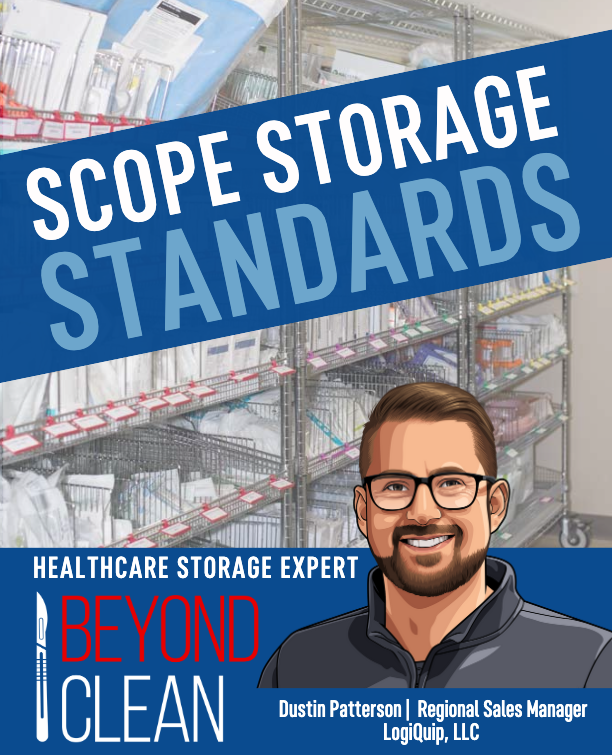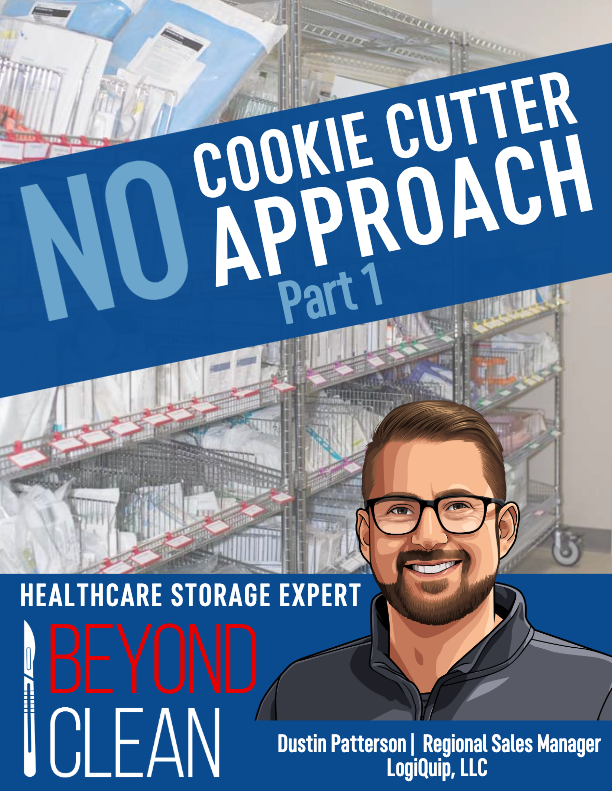Scope Storage Standards
Dustin Patterson | Regional Sales Manager, LogiQuip LLC.
Improperly cleaned and stored endoscopes can cost patients and facilities a great deal. To ensure your patients are safe, there are several things to consider when storing endoscopes to help prevent contamination:
Scope Cabinet: Choose fully enclosed, stainless steel scope cabinets that allow for endoscopes to be stored vertically. Enclosed, stainless-steel cabinets provide impermeable surfaces that are easy to clean. This will protect processed scopes from recontamination from outside sources.
Airflow: Choose a cabinet that provides constantly filtered airflow throughout the cabinets, as well as airflow through each scope, which is consistent with the latest ST91 2021 Guidelines. This will help to ensure that the scopes remain dry inside and out and help to prevent bacteria from living and growing.
Tracking: Have a tracking system in place to manage hang times. There are systems available that allow you to track when scopes are checked in and checked out as well as who checked them in and out. While there is no universally agreed-upon amount of storage time, the SGNA Standards of Infection Prevention in Reprocessing Flexible Gastrointestinal Endoscopes state “SGNA supports a 7-day storage interval for reprocessed endoscopes – but only if they were reprocessed and stored according to professional guidelines and manufacturer instructions.”
Following ST91 and SGNA guidelines as well as manufacturer IFUs and established hospital procedures is paramount to patient safety and should be diligently followed to ensure patient safety.
Dustin Patterson is currently the Mid-West Regional Sales Manager with Logiquip Healthcare Storage Solutions, a leading provider of high- quality, future focused storage systems designed exclusively for use in the healthcare environment. Logiquip is based out of Kalamazoo, MI and has served healthcare organizations across the US for 30 years. Dustin brings over 12 years of experience in space planning and healthcare storage. He has acted on behalf of LogiQuip as the vendor liaison to the AHRMM Wisconsin Chapter, a leading membership group for healthcare supply chain professionals. Working closely with many hospitals and surgery centers, Dustin has developed tailored solutions using a mix of best practices, Lean principles, and industry-leading storage equipment. He has also worked with many Sterile Processing Departments to maximize storage spaces, balancing trade-offs between high-capacity storage layouts and workflow efficiencies.
To view products that support the tips and tricks outlined in this article, click here




